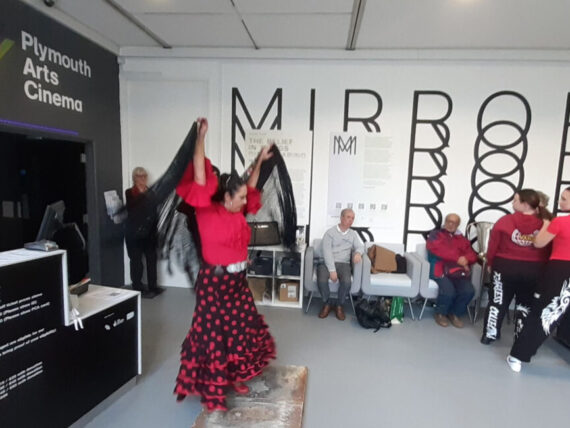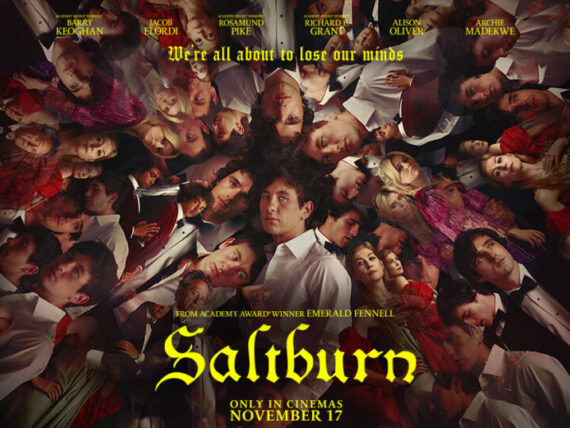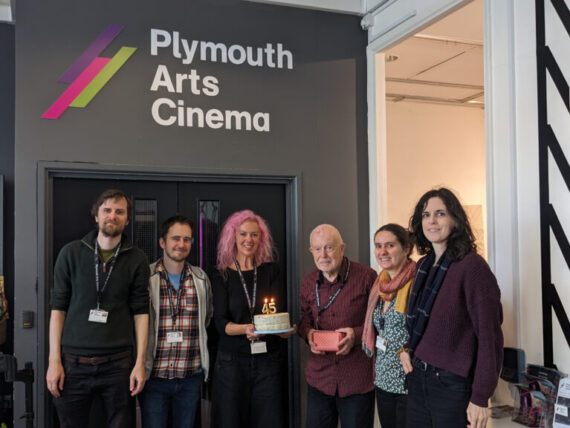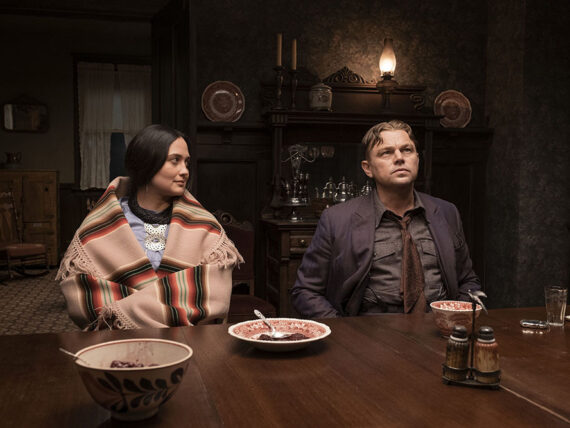Encompassing political and cultural tensions, misogyny and a string of bodies, this Tunisian offering won a Best Director award at The Critic’s Awards for Arab Films for Youssef Chebbi.
This is mainly a mystery film, based around the seeming suicide of a building watchman in the Gardens of Carthage construction site, where building has just restarted following the Revolution. One of the biggest themes throughout the film is immolation (“to kill or destroy, especially by fire”), as this is how all of the victims die. This is a very heavy topic to base a film around, but one that is pertinent to Tunisian history. The self-immolation of a street vendor named Mohamed Bouazizi triggered the Tunisian Revolution and the wider Arab Spring. Although this came out in 2022, the locations used give the impression that this was filmed in post-revolution Tunisia, aided by a very monochromatic colour palate, which adds to the feeling of a wasteland.
The remaining tension in the country is palpable, especially against law enforcement. Scrawled on a wasteland wall is the abbreviation ‘ACAB’, an international signal for public dissidence against the police. There are also tensions within the police force, as the protagonist Fatma’s father is the fictional president of the real-life Truth and Dignity Commission, set up in 2014 for investigating human rights violations. Thirdly, racial tensions are subtly referenced, as with the first murder, there is talk of whether tensions between Tunisian and Sub-Saharan workers had flared up.
Additionally, there are a lot of mentions of religion, and this makes for some interesting arguments in the film. All the victims here have seemingly died without any struggle, which invites the idea that they have brought death upon themselves, however this is in dispute with the religious fervour of some of the victims (suicide is illegal in Islam). The call to prayer can also be heard in the background of many scenes, as well as the mosque being a location used multiple times.
Almost all of Youssef Chebbi’s creations are set in the Arab speaking world, and the topics are wide ranging. In his first short in 2010, Vers le Nord (Heading North), he dealt with illegal traders making deals with the Albanian mafia. He then returned in 2012 for the feature length Babylon, which followed a refugee camp on the Libyan/Tunisian border from its conception to its death. The themes covered in this would have some crossover with Ashkal, as both take place in the aftermath of the Revolution.
The mystery element of the film is well built-up for the most part; however, the slow pace can sometimes make the story feel like it is not moving forward. On the other hand, one thing that is quite refreshing to see is that, even though the central detective team consists of a man and a woman, there is no romantic feeling between them, which is a less clichéd and more realistic representation of a working relationship. Overall, this feels more like a segment from a longer saga rather than a self-contained film in itself. Although this subject matter and style of film may not be for those who like fast paced thrillers, this is an authentic look at a country recovering from a corrupt regime.
Ashkal is screening at Plymouth Arts Cinema as part of the SAFAR Arab Film Festival on Saturday 1 July at 5.30pm.
Review by Imogen Parkin








Comments
No comment yet.